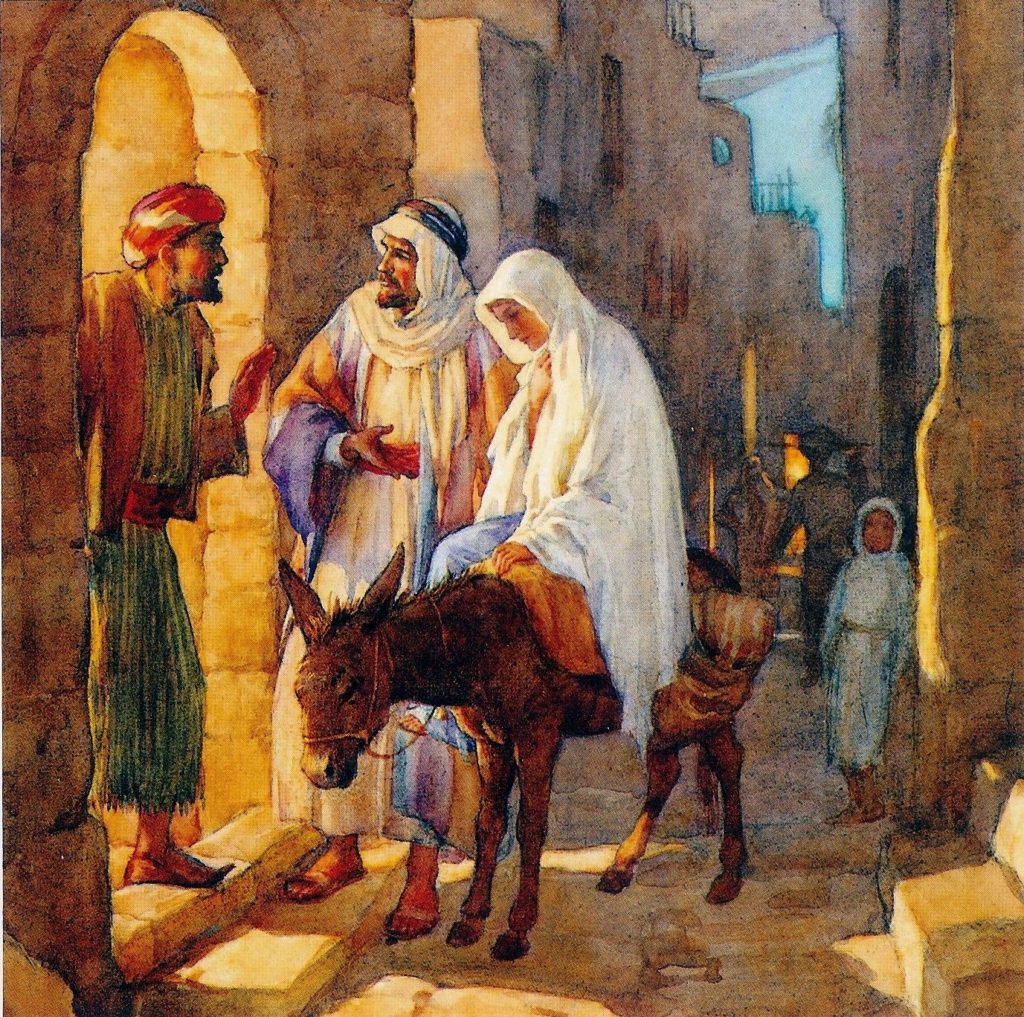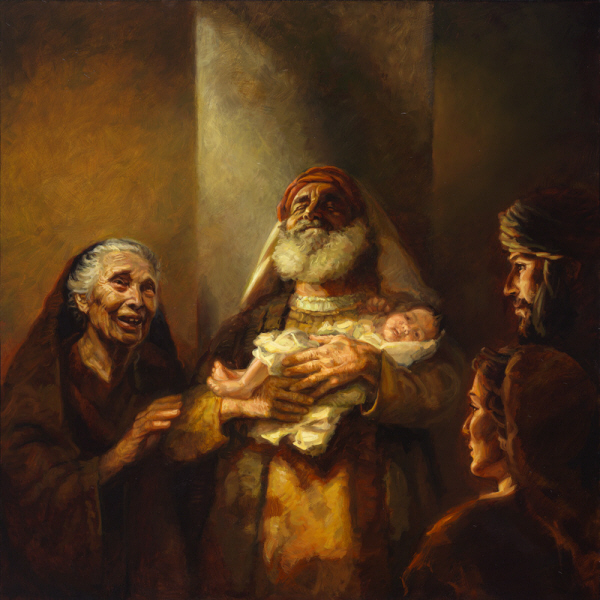
Sincere Flattery

I often ask my wife and son if I look like Jesus to them. I don’t mean in physical appearance, and they don’t think as such. If I have looked like Jesus to them, it’s been in the way I gave. They don’t say I look like Jesus because I did my devotions, or taught a Sunday School class, or wrote an article. They say I look like Jesus if I gave encouragement to them or someone else, or if I gave to someone in ministry out of my pocket, or if I gave love and attention to an unlovable/unnoticeable, or even if I gave my story (testimony) to someone who didn’t know Jesus the way I do. Cowboys gave, and still give, me great pleasure to watch. My dad gave me a place (house) and position (physical) being on this earth. My heavenly Father gave me completeness in everything, including all time (eternity), to share it with Him. I think He is worth imitating. (Pause for Thought: “Your attitude should be the same as that of Christ Jesus.”—Philippians 2:5. How do you feel, emotionally, about living a life of sacrifice? How is Paul’s instruction to us in Romans different than the world’s instruction to us? What is happening and has happened when the world’s way is followed? What happened to you because Jesus lived a sacrificial life? Who will you imitate?)
Read more...

Bearing Devotion

Read more...

Appreciative Understanding

I have encountered people who suppose God must look and consider them in the same they look and consider ants. I’m not sure how they can rate people as high as ants. I wonder if that is why Cain’s story turned out the way it did. Cain never understood or accepted the Divine design. He repeated the mistake his parents made in trying to cover his sins, and maybe the sins of the world at the time (see Genesis 3:15), with his own efforts from what came from the ground. I imagine Adam, Eve, and Abel tried to explain God’s design of care and provision and imitate it for him, but with the bitterness of an ungrateful heart, Cain lacked a worshipful spirit, and he continued in the iniquity of his ways. We need to consider and be the aphid. (Pause for Thought: “After this I looked and there before me was a great multitude that no one could count, from every nation, tribe, people and language, standing before the throne and in front of the Lamb. They were wearing white robes and were holding palm branches in their hands. And they cried out in a loud voice: ‘Salvation belongs to our God, who sits on the throne and to the Lamb’.”—Revelation 8:13. What do you need saved from in your life right now? How does/will your rescue fit into the Divine Design? How will you show your appreciation for your place and being within God’s design?)
Read more...

Means & Ends

If Jesus’ end justifies our place and being, what does that mean for us? What then should be our response to all of this? If you are like most Christians I encounter, they are on a path of trying to earn this justification and glorification. But if something has already been given to you, how can you earn it? You can’t. You are supposed to use it. I figure, scripturally speaking, we use it in three ways—APPRECIATION=WORSHIP (Come, let us bow down in worship, let us kneel before the Lord our Maker; for he is our God and we are the people of his pasture, the flock under his care.—Psalm 95:6-7); DEVOTION=OBEDIENCE (Peter and the other apostles replied: “We must obey God rather than men!”—Acts 5:29); and IMITATION=SACRIFICE (Therefore, I urge you brothers, in view of God’s mercy, to offer your bodies as living sacrifices, holy and pleasing to God—this is your spiritual act of worship.—Romans 12:1). (Pause for Thought: How does knowing the end make it easier to live out your appreciation, devotion, and imitation of Jesus? In what practical ways will you live up to your justification and glorification in front of others this week?)
Read more...

Living Up

I want my son to understand a Christian (Jesus Christ Follower) doesn’t try to earn the places, rights, and privileges given to him, but focuses on living up to these gifts given freely by his heavenly Father. My son’s eventual physical death is just falling asleep and waking up with Jesus—again. Nothing can stop that from happening. My son is a king in the order of Jesus—no one can take that away. I want these grace-filled certainties to be the basis for his living and wisdom. His place, my place, is guaranteed always—now and forever—at our Father’s table. Our earthly failures will not be a reason for our removal from our place at His table, but an opportunity for us to live up to the gracious gift and accompanying responsibilities from our Lord Jesus Christ. (Pause for Thought: “You are those who have stood by me in my trials. And I confer on you a kingdom, just as my Father conferred one on me, so that you may eat and drink at my table in my kingdom and sit on thrones, judging the twelve tribes of Israel.”—Luke 22:28-30. What is the basis for being a Christ follower? How do you view trials when they appear? Do you try to earn your way closer to the King? Do you believe the trial has come as a punishment for something you did or didn’t do? How do you view Jesus’ authority and yours when these trials arrive? If you will allow me, I would like to speak more to the subject of “living up” in next week’s article.)
Read more...

Collections & Revelations

Merry Christmas and a Happy New Year to all God’s Children!
Read more...

Deceptive Distractions

Read more...

Perilous Presents

Generosity is often displayed by refusing to give or receive a gift that would harm (spiritually, soulfully, physically) the receiver and/or giver. We live in a society of instant gratification and have the means to fulfill every pleasure, so it is important to consider our gifts and the consequences of giving them—especially to our children. In kindergarten I received the gift of a comic book from a fellow classmate because he knew I enjoyed superheroes. When I showed my parents the present, they requested I graciously return the comic with the explanation that the comic’s main hero was the son of Lucifer, and we, as a family believed Christ to be our hero over Satan. Devastated, I did what they instructed me to do.
Read more...

Make Room

Read the story of the Shunammite Woman in II Kings 4:8-37; 8:1-6
Read more...

Thanks & Giving

Anna saw the end of the civil war as Roman general, Pompey, would massacre 12,000 of her countryman and desecrate the Holy of Holies at the temple in Jerusalem, leading to Judea’s rule by Rome. This was happening all the while Anna remained at the temple worshiping and praising God for the promised Messiah. (Pause for Thought: “Be joyful always; pray continually; give thanks in all circumstances, for this is God’s will for you in Christ Jesus.”—I Thessalonians 5:16-17. What promises are you giving God thanks for this week? How can the giving of your time, talent, resources—self, be a fulfillment of these promises? How is your family helping God’s fulfillment of these promises in others?)
In her lifetime, Anna witnessed, or would have heard about, king and high-priest Jannaeus’ contempt for Israel’s religious leaders, and his defilement of the sacrifice during the Feast of Tabernacles resulting in the slaughter of 6,000 Jews in the temple courtyard and a civil war that would last decades.
Anna’s proximity to tragedy never impaired her devotion to God or her faith in Him—“she never left the temple but worshiped night and day, fasting and praying. Coming up to them (Mary & Joseph), she gave thanks to God and spoke about the child (Jesus) to all who were looking forward to the redemption of Israel.” Her thankfulness led to and was a service of instruction and realization for others in recognizing Jesus Christ as Lord and Savior. (Pause for Thought: Read the story of Simeon and Anna in Luke 2:21-38. How well does your family live out their thankfulness? How will you use this Thanksgiving to instruct your children about thankfulness and giving?)
Read more...
